LIXIL makes pioneering water and housing products that solve everyday, real-life challenges, making better homes a reality for everyone, everywhere.
- Global Site
-
- English
- Japanese
- Brand Sites
Global
- Global Site
-
- English
- Japanese
- Brand Sites
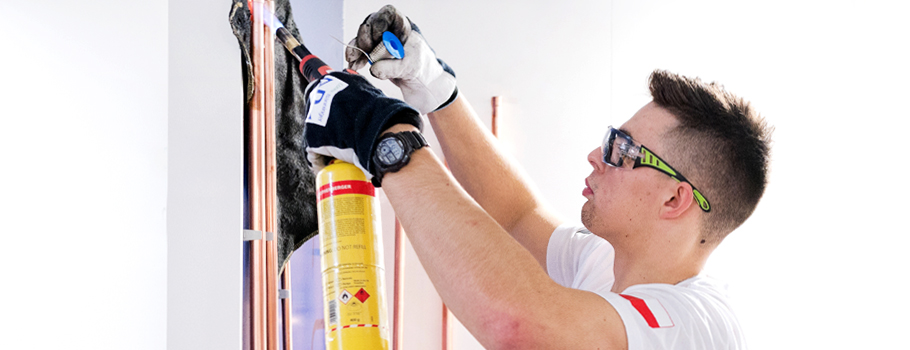
“If you’re a plumber, you have the ability to impact people’s lives,” says Ryan Marsh, watching the WorldSkills plumbing competition unfold before him in Germany. Ryan is a curriculum support manager for engineering at College of Cape Town, South Africa
“In one project in Diepsloot, Johannesburg, we did repairs to precast concrete toilets. We were able to restore dignity – one resident had tears in her eyes just because she had a clean, functional toilet. Money can’t buy the impact we can have on somebody’s life.
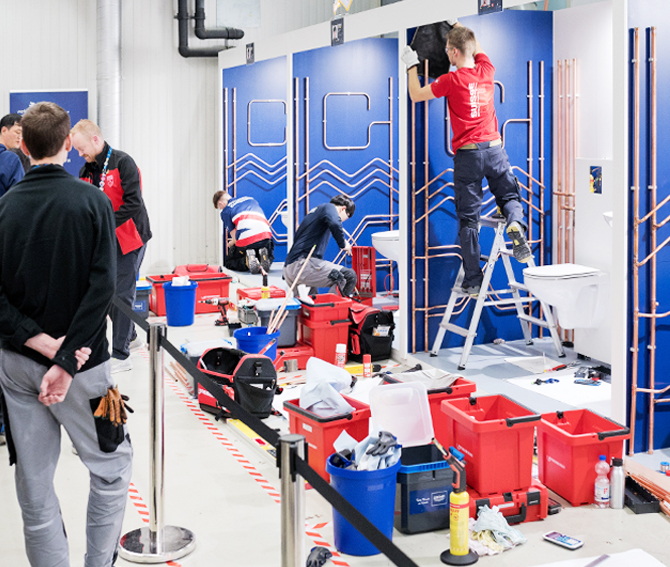
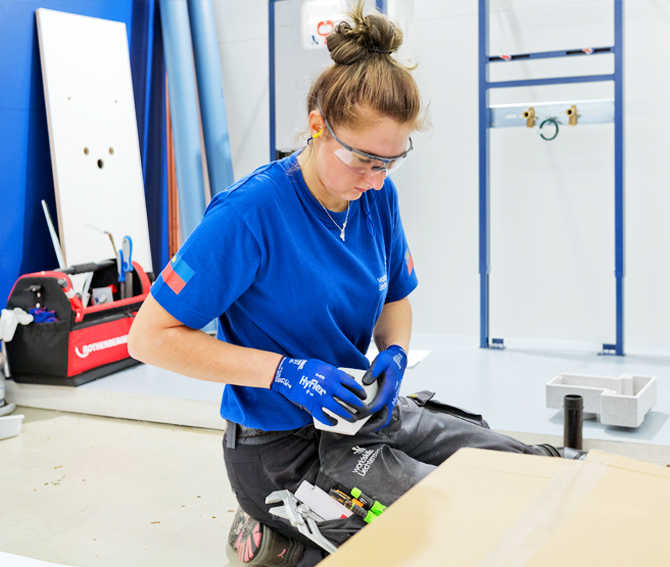
“But the challenge is most people don’t realize how rewarding a career as a plumber can be.”
His sentiment is commonly shared by those around him at the competition, where the world’s elite plumbers use their ingenuity and expertise on complex and geometrical patterns of piping.
There is a global mismatch between plumber numbers and the demand for their skills. Over the course of several years, there has been a steady decline in skilled plumbers as the older generation hangs up their tools. And the number of entrants from younger generations is insufficient to match growing demand. This generational labor shift, replicated worldwide, is leaving a gap – and one that continues to widen due to pent-up demand from homeowners and construction firms keen to get pandemic-delayed projects underway.
Construction firms, contracted to build everything from homes and schools to hospitals and skyscrapers, are feeling the impact. Three-quarters of them are reporting skills shortages.1 This is having a knock-on effect throughout the supply chain to the wider economy.
But with plumbing skills so sought after, there are also opportunities to be had. If enough new joiners can be attracted to the profession, well-run plumbing outfits can prosper and grow. And profitable, rewarding careers can be built.
In a bid to tackle the problem, LIXIL is rolling out new programs to communicate to people of every age, gender and background the benefits of learning a skilled trade.
A Global Demand for Plumbing Skills
The demand for plumbers is acute and global. In the US, the Home Builders Institute’s Construction Labor Market Report Spring 2021 found 55% of builders reporting plumber shortages.2 The US Bureau of Labor Statistics estimates there will be 48,600 plumber, pipefitter and steamfitter vacancies in the country each year between now and 2031.3
“As we look ahead to modernizing America’s water infrastructure and delivering greater water efficiency across the country, we face a significant shortage of plumbers that is getting worse every year,” explains Kerry Stackpole, FASAE CAE, CEO & Executive Director, Plumbing Manufacturers International.
Similar stories have emerged from Australia through to Europe, where plumbers – among other tradespeople – are becoming a scarce commodity.4 5
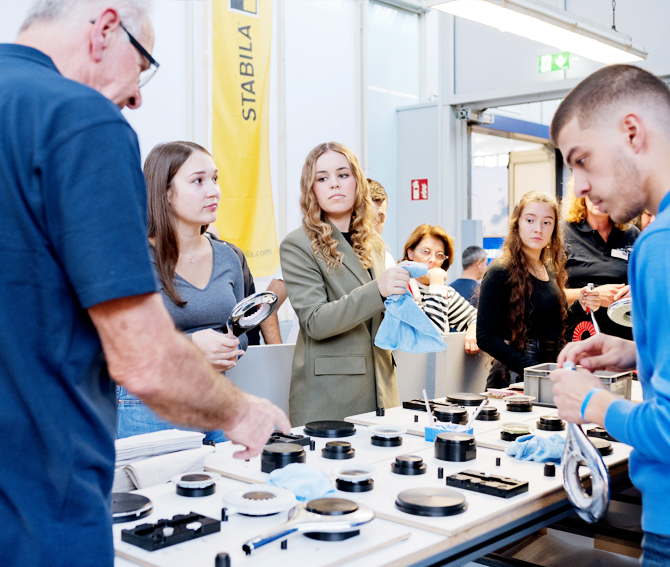
The transition to greener, more efficient technologies and systems is also stretching the talent pool, particularly in the plumbing sector.6
In the UK, for example, a recent report from the Social Market Foundation identifies that huge numbers of plumbers will be needed to install new home heating technology to help meet emissions targets.7 In this way, plumbers have an important opportunity to shape a more sustainable world, helping to sell and install greener technologies.
Like many professions, most of the plumbing workforce is in their prime working age – between their mid-20s and early 50s.8 But this core body is shrinking. The reasons for this decline vary by market.
In part, it’s due to aging populations. Alongside this, the younger generation entering the workforce have negative associations with hands-on work in some economies. This also means that businesses previously passed down through family generations are dying out.
A lack of funding for training opportunities is also a contributing factor, with many schools placing little emphasis on careers in skilled trade.
Stepping in to Close the Skills Gap
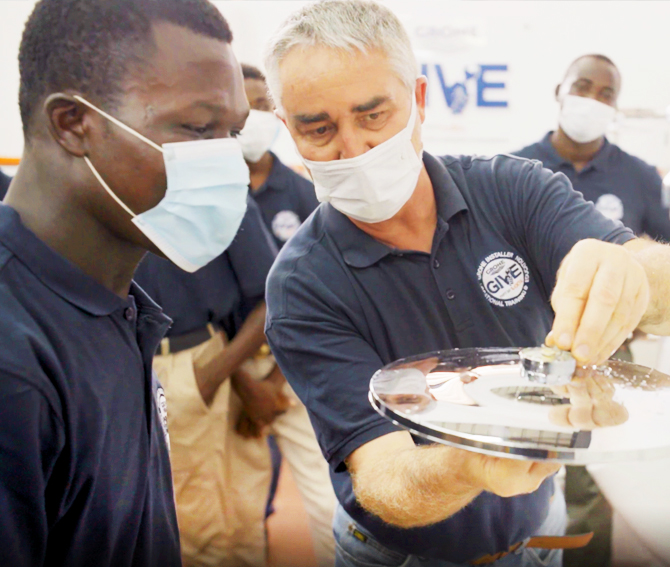
The GROHE Installer Vocational Training and Education (GIVE) program was developed to help solve the shortage of skilled installers in the sanitary industry across Europe, the Middle East and North Africa (EMENA). It includes collaborations with over 40 plumbing institutions offering training across the EMENA region to provide fully functioning training racks, learning materials, and experienced trainers.
The program has also set up 12 new training facilities in 2021, including one in Ghana, West Africa.
“Our program offers young talented soon-to-be plumbers hands-on training that eases their start into professional life,” says Christopher Penney, leader of the GIVE program LIXIL EMENA.
“Students will learn about the latest technologies and sanitary innovations, which will ensure they are capable of installing and maintaining our expanding product range before embarking on their plumbing careers.”
In some regions, solving the skills gap is closely connected with solving deeper societal challenges. In South Africa, LIXIL provides training for women, young people and the unemployed as part of its community outreach programs.
In September 2022, LIXIL’s Cobra brand provided basic plumbing courses to unemployed youth in the poverty- and drought-stricken town of Bitterfontein in the Western Cape province of South Africa. It has run similar programs in the past for victims of gender-based violence.
Building Skills for the Future of the Profession
Elsewhere, LIXIL’s TradeUp initiative has been helping support vocational training in regions across the US for the past five years. As part of this effort, the company has fostered partnerships with not-for-profit organizations, including Plumbing Manufacturers International, American Supply Association, Plumbing Heating and Cooling Contractors, Plumbers Without Borders, and Tools & Tiaras to raise awareness about the shortage.

The initiative also works with academic institutions, customers and sales representatives to encourage people to seek out a career in the plumbing profession.
As the WorldSkills competition’s artisans worked their wrenches and spanners, Becky Bates, owner of BB Plumbing in Cardiff, UK, summed up the opportunity for those considering the trade.
“Plumbing is not just about putting hot and cold pipes together. It has many aspects such as technology, customer relations, entrepreneurship, which makes it a very exciting career option.”
Our Stories
- Backing People and Passions to Drive Innovation
- How Toilets in Schools are Catalyzing Change in Communities
- Building the Future by Recycling the Past
- Reinventing Consumer Connections in the World's Largest E-commerce Market
- Tackling Household Water Inefficiency in a Water-Stressed World
- Plugging the Plumber Shortage
- Pioneering Solutions to a Sewage Crisis in Rural Alabama
- Meet the Citizen Developers Changing How We Work
- Design and Brand Identity Transformation at LIXIL
- Three Changes to Prepare Europe’s Sanitary Industry for Growth
- Three Steps to Creating an Inclusive Culture
- From Linear to Circular: Giving Products in Your Home a New Lease of Life
- Crafting Unique Experiences as well as Products
- GROHE X: A Digital Brand Experience
- Design-led Innovation Delivering True Value
- Responsible Use of Plastics
- Empowering our People for an Agile Future
- Turning the Waves of Change into Opportunities
- SATO Tap: a New Handwashing Solution for All
- New Ways of Working Take Flight at LIXIL
- INAX: Rituals of Water
- Refreshing our sanitation targets, standing firm on our commitments
- Developing Attractive and Differentiated Products
- Conserving Water: The New Normal
- Insulating For a Warmer and Healthier Home
- Open Kitchen, Open Communication
- Tackling Open Defecation in India
- Shaping the Future of Faucets, One 3D Layer at a Time
- Bathed in Culture and Tradition
- Remodeling the Housing Market
- LIXIL's AQUA CERAMIC makes bathroom stains a thing of the past
- The Technology of Water
- Tackling Challenges in Global Sanitation and Hygiene
